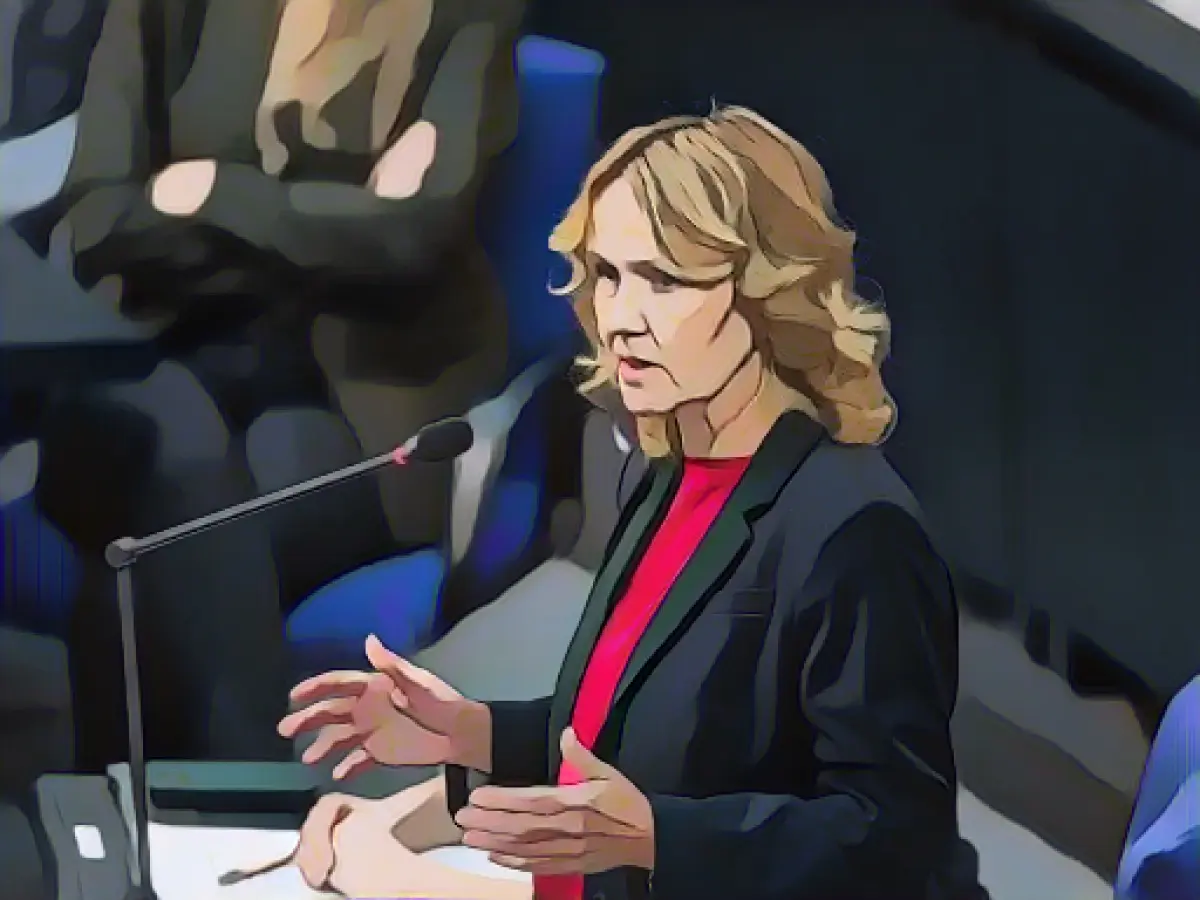Bundestag passes law to improve climate adaptation
The Bundestag has passed a law to improve climate adaptation. The parliamentary groups of the governing parties SPD, Greens and FDP voted in favor of the law by Environment Minister Steffi Lemke (Greens). The CDU/CSU parliamentary group and the AfD voted against. The left-wing parliamentary group abstained.
The plans of the traffic light coalition envisage prescribing binding strategies and measures for the federal, state and local governments. According to the bill, this would create a strategic framework for preventative climate adaptation at all administrative levels in Germany for the first time. Specifically, the federal government undertakes to present an adaptation strategy with measurable targets.
"The crux lies in the financing"
"We must return to the basic consensus that we must protect the people in our country from the dramatic consequences of the climate crisis," said Lemke during the debate in the Bundestag. However, the crux of the matter lies in the financing. "Climate protection and climate prevention cause costs. But if we didn't do this, the costs would be many times higher."
The CDU/CSU parliamentary group complained that the government was providing virtually nothing to finance climate adaptation. "I can only appeal to you: Please learn from yesterday's Karlsruhe ruling," said Steffen Bilger from the CDU/CSU parliamentary group. "Clarify financial issues before you justify obligations and costs in law, otherwise you will suffer another financial policy crash landing."
Financing is a sticking point in the law - it does not contain any specific regulations on this. This is because the federal government cannot finance local authority projects directly; so far, this has only been possible for pilot projects. However, climate adaptation measures - such as relocating dykes - can take up to 20 years. The plan is for the law to come into force in 2024. The Federal Council still has to give its approval.
The budget ruling does not make the situation any easier: on Wednesday, the Federal Constitutional Court ruled that the use of coronavirus loans for climate projects was unconstitutional. The ruling tears a 60 billion euro hole in the financing of the German government's climate projects.
- Steffi Lemke, the Environment Minister from the Greens party, highlighted the necessity of protecting citizens from the climate crisis during the debate in the Bundestag, emphasizing that while climate protection and adaptation come with costs, the absence of action would result in significantly higher expenses.
- Despite her calls for funding, the CDU/CSU parliamentary group criticized the government for failing to provide adequate financing for climate adaptation, urging them to learn from the past and address financial issues before implementing laws with associated expenses.
- Financing remains a challenge for the new law; it does not specify any regulations in this regard, as the federal government cannot fund local authority projects directly, making long-term climate adaptation projects, such as relocating dykes, challenging to finance.
Source: www.dpa.com







